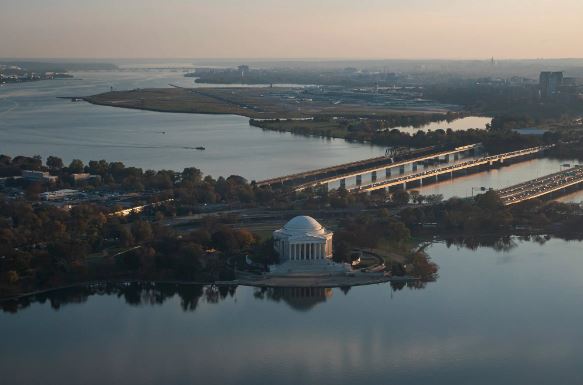On Wednesday, authorities in Washington, D.C., and Arlington, Va., issued a boil water advisory for all 920,000 residents after detecting elevated pollution levels in a reservoir, caused by algae blooms in the Potomac River. The advisory affects a wide range of areas including the Pentagon, Arlington National Cemetery, and Reagan National Airport. The District of Columbia Water and Sewer Authority (DC Water) stated that the advisory would remain in effect until water safety is confirmed.
John Lisle, a spokesman for the Washington water utility, noted that it is highly unusual for such a comprehensive boil water advisory to be issued, and in his 11 years with the utility, he had not seen a warning of this magnitude.
The algae blooms and resulting turbidity raised concerns about water quality, prompting the advisory. Cloudy or hazy water can indicate contamination with bacteria, viruses, and parasites, which can cause symptoms such as nausea, cramps, diarrhea, and headaches. Vulnerable populations, including infants, children, the elderly, and those with compromised immune systems, are at greater risk of illness from contaminated water.
Authorities advised residents to discard any beverages or ice made after 9 p.m. on Wednesday and to bring water to a rolling boil for at least one minute before cooling it for use. This precautionary measure is essential for drinking, brushing teeth, washing food, preparing baby food, making ice, or providing water to pets.
The United States Army Corps of Engineers, responsible for the Washington Aqueduct, responded to the increase in algae and turbidity by enhancing its filtering capacity. This included washing existing filters and acquiring additional ones. Turbidity was detected at the Dalecarlia Water Treatment Plant, leading the Washington Aqueduct to initially shift all water treatment to the McMillan plant to ensure safety. However, concerns about sufficient water supply, especially for firefighting needs, necessitated resuming water treatment at the Dalecarlia plant.
Mr. Lisle explained that the decision to continue using water from the Dalecarlia plant was also influenced by the expected increase in water usage during the Fourth of July holiday. The duration of the advisory remains uncertain.
Fairfax Water, which services another Northern Virginia suburb, reported no boil water notices since it ceased receiving water from the Washington Aqueduct earlier on Wednesday.
The advisory has significant implications for daily life in Washington, D.C., and Arlington. Residents are urged to take the advisory seriously and follow the recommended precautions to avoid health risks. The situation highlights the challenges faced by water utilities in maintaining safe water supplies amidst environmental changes and increased demand.
DC Water and Arlington County are working diligently to monitor and address the water quality issues. Officials are conducting tests to ensure that once the advisory is lifted, the water will be safe for all uses. In the meantime, residents should remain vigilant and adhere to the guidelines provided to minimize the risk of illness.
This incident underscores the importance of robust water treatment infrastructure and proactive measures to address potential contamination. The collaboration between the United States Army Corps of Engineers, DC Water, and local authorities is crucial in managing the current situation and preventing future occurrences.
Residents seeking updates on the boil water advisory are encouraged to stay informed through official channels and local news outlets. The authorities will provide regular updates as more information becomes available and as efforts to ensure water safety progress.
The boil water advisory in Washington, D.C., and Arlington, Va., is a necessary response to algae-induced pollution in the Potomac River. By following the advisory guidelines and taking necessary precautions, residents can help protect their health until the water supply is confirmed safe for consumption and use. The collective efforts of the water utilities and the community are essential in navigating this challenging situation.

